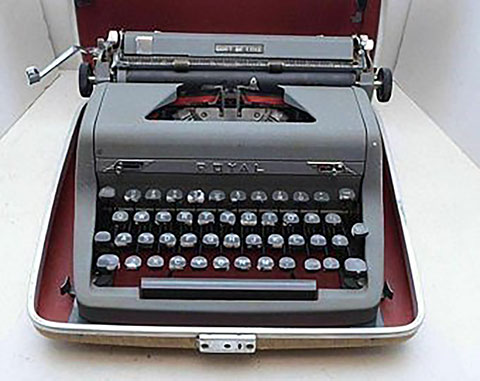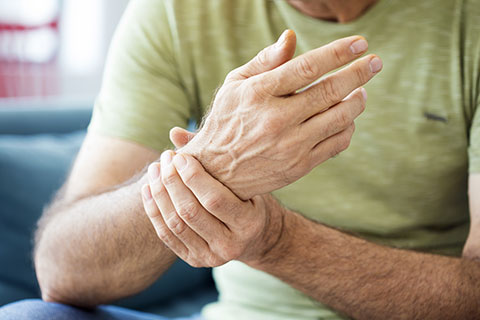 My son is a journalist and thereby meets a great variety of interesting people. Recently he met someone who is going into the business of restoring typewriters. That made me smile.
My son is a journalist and thereby meets a great variety of interesting people. Recently he met someone who is going into the business of restoring typewriters. That made me smile.
For a long time (this was years ago) I resisted purchasing a computer, listening with a bemused smile as people debated the relative merits of a PC in contrast to an Apple. I hung on to my beloved old Royal Typewriter, one of many I had. I would go to flea-markets in search of spare parts and ribbons, and find them.
There was a wonderful finger-feel to those old machines, and a musical clatter that was truly soothing. My older boys have told me that were put to sleep by the late-night clacking of my machines. And oh, yes, there was that wonderful DING! when you threw the carriage back.
(Did you know that the QWERTY system of key arrangement was designed to slow down the old manual typewriters? People typed so fast the keys kept jamming. Such is progress.)
There was an added asset to a manual typewriter: it also functioned as an editor. The point being that working on a manual typewriter was a laborious project. For me it was even harder since I never had learned to touch-type, but had (have) my own odd-ball hunt and peck system. But mind, I could (can) type fast. But oh, that carbon paper; the onion skin copy paper! Do you remember that? Nasty stuff.
Anyway, one day I needed to retype a manuscript. I had put it off, but it was due the next day. All 200 or so pages. I therefore began in the morning, say seven AM. At about two PM I was still going, if not strong, at least going.
Come five PM my hands were aching to such a degree that I knew if I stopped I’d never be able to resume.
I finished typing the book at about eight PM. I sent it in the next day (by snail mail of course). For the next three days, I couldn’t move my hands.

But about that typewriting editing: Because, as per the above, it was so much work, I often cut my text as I worked, not to enhance the quality, but to reduce the work. But the truth is, it did enhance the quality. It never hurts to cut. Manual typewriters made it pleasurable.
Ever notice that there are more big books (as in page count) than ever? Thank the computer—the dull, click-clicking of the computer, without even a musical bell for punctuation. Yes, it’s far easier to write on a computer, as I would eventually learn. Still, it has a spell-checker to compensate for its dullness.
This past Christmas I consulted with my son as to a good Christmas gift for my fifth-grade grand-daughter. To my astonishment I was told, “She’d really like a typewriter. She finds the computer distracting.”
I found a new one for her. An electric one.
She’s using it.
But I do feel sorry for her: no clatter, clatter, clatter, DING! Pure music to my ears.
Maybe I’ll seek out that typewriter restorer.
2 thoughts on “Clatter, clatter, clatter, DING!”
Today’s blog brought a chuckle and memories of writing my Master’s Thesis. I HAD to have a computer to do it. At that time, I didn’t own a typewriter and was happy with my purchase of an Apple 2C, of which I was very proud.
There was a time I thought I would never write on a computer. I liked (like) the feel of the pen on paper. As my hands have aged (I will never!), I find it easier to use the computer, which is faster, easier on the fingers and hands, and more efficient.
But it’s efficiency, your thoughts have made me reflect, is inefficient. I lose changes to deletions as I revise or edit. I lose the slower pace of writing by hand. I lose the feel of that pen on the paper. I lose.
So, what to do? That’s a conundrum on which to ponder.
Thanks Avi for the trip down memory lane. I remember the typewriter keys getting jammed together when I typed too fast; carefully dabbing liquid “white out” over my typos; and the exercise of changing the ribbon, which to me seemed somewhat like changing a car tire. I don’t miss typewriters much, but I do miss the DINGs!